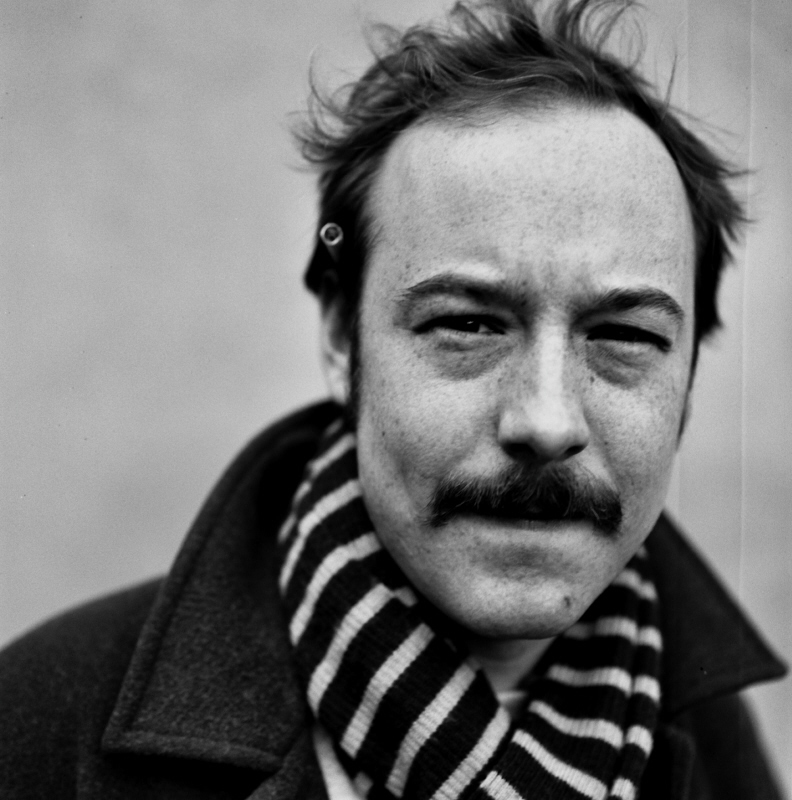Austin Poem
And what it all came down to was
faces sheened with sweat and beer cans,
cigarrettes held dangling and hesitant,
eardrums pulsing and heads throbbing
while the waves washed over and into
and through bodies in tight jeans worn
with years and snuff cans, wallets
and token key trinkets given by girlfriends
long gone and friends miles away,
for remembering.
The way light reflected from shoulderblades
and shadows marked cheekbones with hollows
and high points that could be read like Tarot,
the shape of hips and tanning, sandals,
and uncertainty – where go? what do?
Listen: it will explain itself, in time,
if only you shun earplugs and sunglasses,
if you let yourself believe you can be witness
to something big, that something big, even if it’s small,
is still possible, like the fixin’ to die rag,
or a gong and different camera angles:
don’t watch the TV, on the screen up there,
because it’s not real, even if it looks close:
your angle is the best, much better than all the rest,
don’t you know that? And how many times
have I told you I love you? And how many times
won’t you believe me? How many times
will you shake off and turn left, 90 degrees from me,
and fold arms, slipping them, one, after, the other,
under and above each other, until they come to rest,
like a sigh, like a dream, layered and comforting
each other, when I’m left here holding a tired joint
and glasses whose frames you used to like,
flicking a lighter, on, off, flame, no-flame,
with a snick each time, our relationship’s metronome.
Here are sideburns frayed like newsprint,
red hair close-cropped and boyish, but in the style,
flower prints on summer dresses and old shirts
with patterns and holes and bits of paint and white-out,
and eyes drifting like smoke, like empty river rafts,
hunting a place to put in for the night,
find some saltback and a biscuit,
a campfire and a scarred guitar, and later on,
embers and the smell of trees, the haunt of crickets
and nightbirds, coming from everywhere, surrounding
from all points and permeating until the tingle comes
and the first rays of the rising sun break.
Streetlight humming and heightening,
light from the Tower spilling down and shaking,
still nervous after these several decades,
but also, still there.
Talk and blonde hair and eyes furtively met,
the glint of green or hazel and thinking of cats
creeping at night through dark alleyways full
of stumbling and linked arms and silly songs
sung by friends, off-key and maybe not remembered
in the morning – let’s not consider years from now,
No, let’s be now.
Skipping and lions and tigers and oh my
when he kisses you for the first time, unexpectedly,
against redbrick and white cement crumbling,
but wanted oh so badly for so long,
for all your life it seems, ever since you were in the womb,
longing for a twin, doesn’t even have to be identical,
fraternal even, just somebody to be there and hold
your hair back when you’re drunk in the street
and steadying a concrete curb with a shaking wrist,
or when your dad dies and your mom drinks whiskey,
bottles of it, in his honor, as a tribute, she says,
with mascara running and hair graying and you
pulling away, twisting in your head side to side
with arms out, flailing, looking for a doorjamb
to steady yourself under and hide from the falling plaster
and asbestos: your fault’s quite overdue.
And for you, somebody to be there so you can feel,
and not be afraid, somebody to touch your hand
in that way and have it speak encyclopedias and dictionaries,
when two decades of preachers haven’t filled you
with anything but nervousness
and a contingency plan.
Breeze through bushes and light off freshly-washed cars,
seeing the moon big in the sky, like in a movie
set in the Pacific, starring a volcano and sex.
Bicycles and cardboard, skateboards,
held hands and married couples far too young
to be anything but clutching.
Smells of beer, cops, pizza, Chinese food,
take-out in those boxes that you’ve always wanted
to have in a fridge to share with that girl
who’s never yet appeared, but the poster that flutters
across the pavement and smacks flat across the street,
on a telephone pole, just so you can read it,
makes you hope that maybe, maybe.
Neon and argon and pitchers of beer collecting drops
while lungs collect tar and nicotine ebbs and flows,
stilling the seas of turbulent growing up
and giving the flotsam and jetsam a time
to be what they are, and be good for that.
Pool cues and blue chalk and the echoing crack
of the break and the thunk-thunk of a lucky shot,
two stripes solid in the hole, quarters stacked,
chinking, chinking, plans made, broken, made again,
feeling good about having a friend who drives a stick
and drives your car okay, so you don’t have to worry.

















